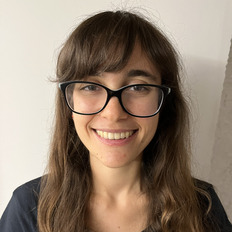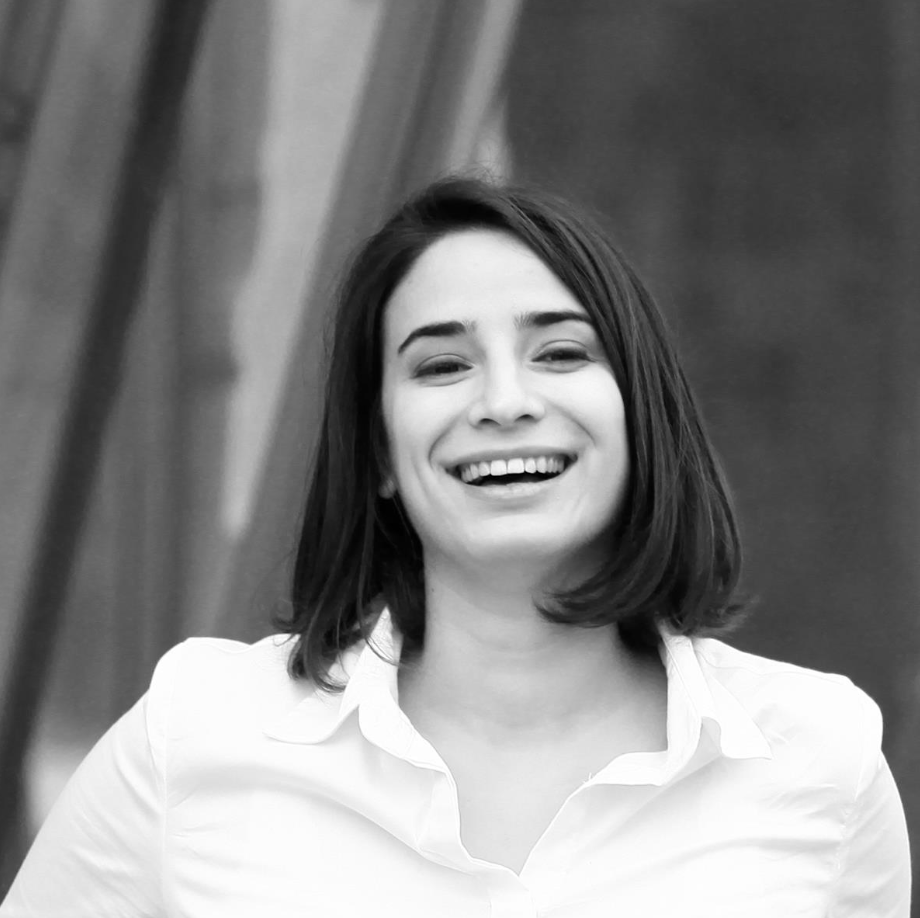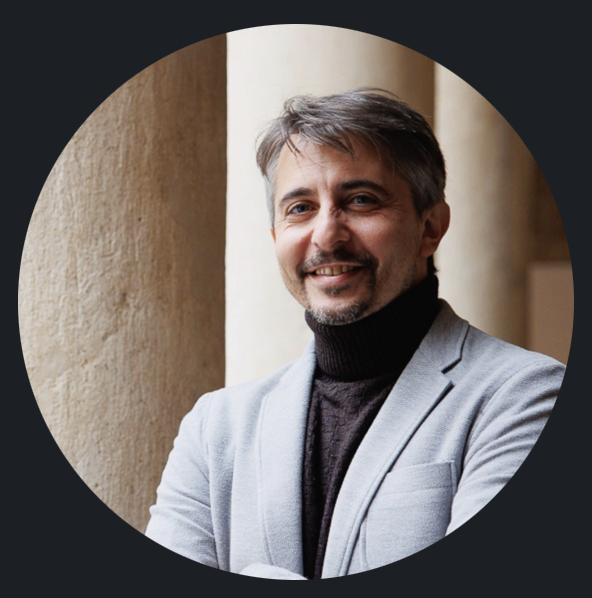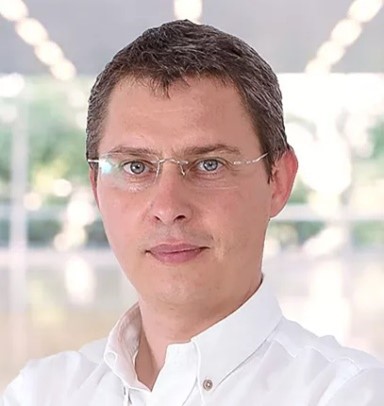Program
Legend
| Plenary | ITADATA | HPC | Workshop | Demo/Tutorial | ITADATAHack |
Day 1 - September 17, 2024
| Time | Auditorium | Room 27 | Room 28 | |
| 9:00 - 10:00 | ITADATAHack | BigHPC_1 | Workshop "Cybersecurity and Data Spaces: covering the last mile of innovation" | |
| 10:00 - 11:00 | ITADATAHack | |||
| 11:00 - 11:30 | Coffee Break (Room 29 / Chiosco) | |||
| 11:30 - 12:30 | Demo "Deploying Complex Crowdsourcing Tasks Without Fear: An Introduction to Crowd_Frame" | BigHPC_1 | Workshop "Cybersecurity and Data Spaces: covering the last mile of innovation" | |
| 12:30 - 14:00 | Lunch (Room 29 / Chiosco) | |||
| 14:00 - 14:15 | Institutional Greetings - CNR | no event | no event | |
| 14:15 - 15:00 | Keynote Speech: Laura Li Puma | |||
| 15:00 - 16:00 | Panel "Data management and analysis in complex scenarios and infrastructures" | |||
| 16:00 - 16:30 | Best Ph.D. and Master Thesis Awards on Big Data & Data Science and Speech of the Best Ph.D. Thesis Awardee | |||
| 16:30 - 16:45 | ITADATAHack Awards | |||
| 19:00 | Social Event | |||
Day 2 - September 18, 2024
| Hour | Auditorium | Room 27 | Room 28 | |
| 9:00 - 10:00 | Round table on Responsible Data Science with Jeroen Van Den Hoven, Giovanni Comandé, Fosca Giannotti, Riccardo Guidotti | no event | Workshop "Scientific HPC in the pre-Exascale era" | |
| 10:00 - 11:00 | ||||
| 11:00 - 11:30 | Coffee Break (Room 29 / Chiosco) | |||
| 11:30 - 12:30 | Big Data and Data Science in Healthcare and Beyond | BigHPC_2M | Workshop "Scientific HPC in the pre-Exascale era" | |
| 12:30 - 13:10 | Data Spaces | |||
| 13:10 - 14:30 | Lunch (Room 29 / Chiosco) | |||
| 14:30 - 15:30 | Data Ingestion and Preprocessing | BigHPC_2A | Workshop "Scientific HPC in the pre-Exascale era" | |
| 15:30 - 16:00 | Coffee Break (Room 29 / Chiosco) | |||
| 16:00 - 17:00 | LLMs | BigHPC_2A | Workshop "Scientific HPC in the pre-Exascale era" | |
| 17:00 - 18:00 | Demo "Navigating Academic Landscapes: Advanced Graph Databases for Big Scholarly Data Integration and Analysis" | |||
| 20:15 | Social Dinner | |||
Aula Faedo - Day 2 - September 18, 16:30 - 18:00 Meeting of the CINI Nodes of the Lab
Day 3 - September 19, 2024
| Hour | Auditorium | Room 27 | Room 28 | |
| 9:00 - 10:00 | Keynote Speech (SoBigData.it) | no event | no event | |
| 10:00 - 11:00 | Big Data and Data Science Applications I | Tutorial "Contributions of Statistical and Machine Learning Methods for the monitoring and the prediction" | ||
| 11:00 - 11:30 | Coffee Break (Room 29 / Chiosco) | |||
| 11:30 - 12:00 | Big Data and Data Science in Finance | System Life Cycle Management | Workshop "LegaLita 2024: 1st Italian Workshop on FAIR Management of Linguistic Legal Data" | |
| 12:00 - 12:40 | Big Data and Data Science Applications II | Big Data and Data for Social Network Analysis | ||
| 12:40 - 12:50 | Advancements in ML | |||
| 12:50 - 13:00 | no event | |||
| 13:00 - 14:00 | Lunch (Room 29 / Chiosco) | |||
| 14:00 - 14:30 | Visualization and Modeling | BigHPC_3 | Workshop "LegaLita 2024: 1st Italian Workshop on FAIR Management of Linguistic Legal Data" | |
| 14:30 - 15:50 | Demo "Assessing Cybersecurity of Public Safety Infrastructure" | |||
| 15:50 - 16:00 | Closing | no event | no event | |
Big Data and Data Science in Healthcare and Beyond
Chair:
Roberto Pirrone
Program
- Exploring the intersection between DataSpaces and Large Language Models Salvatore Distefano, Yordanos Nebiyou Yifru
- Interpretable Machine Learning for Oral Lesion Diagnosis through Prototypical Instances Identification Alessio Cascione, Mattia Setzu, Federico A. Galatolo, Mario G. C. A. Cimino, Riccardo Guidotti
- A Comparative Analysis of Image Descriptors for Histopathological Classification of Gastric Cancer Marco Usai, Andrea Loddo, Alessandra Perniciano, Maurizio Atzori, Cecilia Di Ruberto
- Exploring Few-Shot Object Detection on Blood Smear Images: A Case Study of Leukocytes and Schistocytes Davide Antonio Mura, Michela Pinna, Lorenzo Putzu, Andrea Loddo, Alessandra Perniciano, Olga Mulas, Cecilia Di Ruberto
Data Ingestion and Preprocessing
Chair:
Antonio Maratea
Program
- A Methodology to extract Geo-Referenced Standard Routes from AIS Data Michela Corvino, Filippo Daffinà, Chiara Francalanci, Paolo Giacomazzi, Martina Magliani, Paolo Ravanelli, Torbjorn Stahl
- A metadata model for profiling multidimensional sources in data ecosystems Claudia Diamantini, Alessandro Mele, Domenico Potena, Cristina Rossetti, Emanuele Storti
- Efficient Data Ingestion in cloud based architecture: a Data Engineering Design Pattern Proposal Chiara Rucco, Antonella Longo, Motaz Saad
- Active Data Sampling and Generation for Bias Remediation Antonio Maratea, Rita Perna
LLMs
Chair:
Filippo Berto
Program
- From User Preferences to Optimization Constraints Using Large Language Models Manuela Sanguinetti, Alessandra Perniciano, Luca Zedda, Andrea Loddo, Cecilia Di Ruberto, Maurizio Atzori
- Augmenting Anonymized Data with AI: Exploring the Feasibility and Limitations of Large Language Models in Data Enrichment Stefano Cirillo, Domenico Desiato, Giuseppe Polese, Monica Maria Lucia Sebillo, Giandomenico Solimando
- From Text to Talent: A Pipeline for Extracting Insights from Candidate Profiles Paolo Frazzetto, Muhammad Uzair Ul Haq, Flavia Fabris, Alessadro Sperduti
- MedPix 2.0: A Comprehensive Multimodal Medical Dataset for Advanced AI Applications Irene Siragusa, Salvatore Contino, Massimo La Ciura, Rosario Alicata, Roberto Pirrone
Big Data and Data Science Applications
Chair:
Domenico Lembo
Program
- Symbolic Audio Classification via Modal Decision Tree Learning Enrico Marzano, Giovanni Pagliarini, Riccardo Pasini, Guido Sciavicco, Ionel Eduard Stan
- Multi-view Learning for the Identification of Risky Users in Dynamic Social Networks Francesco Benedetti, Antonio Pellicani, Gianvito Pio, Michelangelo Ceci
- Multivariate Time Series Anomaly Detection in Industry 5.0 Lorenzo Colombi, Michele Vespa, Nicolas Belletti, Matteo Brina, Simon Dahdal, Filippo Tabanelli, Elena Bellodi, Mauro Tortonesi, Cesare Stefanelli, Massimiliano Vignoli
- An Evaluation Framework for the FAIR Assessment tools in Open Science Payel Patra, Daniele Di Pompeo, Antinisca Di Marco
Big Data and Data Science in Finance
Chair:
Marco Piangerelli
Program
- Financial Twin Chain, a platform to support financial sustainability in supply chains Giuseppe Galante, Christiancarmine Esposito, Pietro Catalano, Salvatore Moscariello, Pasquale Perillo, Pietro D'Ambrosio, Angelo Ciaramella, Michele Di Capua
- WeirdFlows: Anomaly Detection in Financial Transaction Flows Arthur Capozzi, Salvatore Vilella, Dario Moncalvo, Marco Fornasiero, Valeria Ricci, Silvia Ronchiadin, Giancarlo Ruffo
System Life Cycle Management
Chair:
Nicola Bena
Program
- Assurance in DevSecOps Pipelines Alex Della Bruna, Marco Anisetti, Giandonato Inverso
- On automated bias assessment and mitigation in software requirements Giordano d'Alosio, Claudio Di Spio, Antinisca Di Marco, Davide Di Ruscio
- Towards dynamic service scheduling in the cloud-to-edge continuum Angelo Marchese, Orazio Tomarchio
Big Data and Data Science Applications
Chair:
Filippo Berto
Program
- GRAPHITE - Generative Reasoning and Analysis for Predictive Handling in Traffic Efficiency Francesco Piccialli, Marzia Canzianello, Diletta Chiaro, Stefano Izzo, Pian Qi
- Deep Learning Forecasting of Induced Earthquakes through the Analysis of Precursory Signals Fabio Giampaolo, Francesco Piccialli
- Enhancing Manufacturing Efficiency through Intelligent Data Analytics: A Case Study from the Marble and Natural Stone Industry Paolo Errico, Corrado Prati, Vittoria Ferlin
- Supporting Law-Making by Retrieval-Augmented Generation Davide Riva, Davide Lamorte
- Semi-Supervised Federated Learning for Cloud Detection using Ceilometer Data Alessio Chisari, Bruno Casella, Wladimiero Patatu, Sebastiano Battiato, Marco Aldinucci, Mario Valerio Giuffrida
Big Data and Data Science for Social Network Analysis
Chair:
Salvatore Citraro
Program
- Information diffusion assumptions can distort our understanding of social networks Matthew R. DeVerna, Francesco Pierri, Rachith Aiyappa, Diogo Pachecho, John Bryden, Filippo Menczer
- Signed ego networks on Twitter/X Jack Tacchi, Chiara Boldrini, Andrea Passarella, Marco Conti
- Studying online conspiracy theories on TikTok Francesco Corso, Francesco Perri, Gianmarco De Francisi Morales
- Machine Learning and Mining on Graphs for Web3 Social Network Analysis Alessia Galdeman, Manuel Dileo, Cheick Ba, Christian Quadri, Matteo Zignani, Sabrina Gaito
Advancements in ML
Chair:
Michela Natilli
Program
- FedHP: Federated Learning with Hyperspherical Prototypical Regularization Samuele Fonio, Mirko Polato, Roberto Esposito
- Evaluating Time Series Summarization: A Clustering-Based Empirical Study Devis Bianchini, Massimiliano Gadda
Visualization and Modeling
Chair:
Nicola Bena
Program
- An Ontology-based Approach for Multidimensional Data Modeling Domenico Lembo, Maurizo Lenzerini, Antonella Poggi, Fabrizio Scafoglieri
- Analysis of Data Collection by Persistent Entropy Emanuela Merelli, Marco Piangerelli
- Introducing Fairness in Graph Visualization via Gradient Descent Seok-Hee Hong, Giuseppe Liotta, Fabrizio Montecchiani, Martin Nöllenburg, Tommaso Piselli
Data Spaces
Chair:
Giancarlo Ruffo
Program
- Designing Data Spaces: navigating the European initiatives along technical specifications Angelo Martella, Cristian Martella, Antontella Longo
- Space of Data through the Lens of Multilevel Graph Marco Caputo, Michele Russo, Emanuela Merelli
- Artificial Intelligence in Medical Imaging: the Role of the European Health Data Space Roberto Pirrone
Data management and analysis in complex scenarios and infrastructures
Modern distributed systems are increasingly complex and interconnected. Delivered on the cloud-edge continuum, boosted by 5G, built on AI, and deployed in critical domains (health, transportation…). These systems produce, store, share, and analyze huge amount of data, posing strong requirements on their quality and privacy, and requesting new governance solutions.
AI, foundational models, LNP add complexity on top of these systems, while being an opportunity to connect heterogeneous systems. These systems also require new verification techniques proving their (non-functional) behavior.
In this context, data governance, including privacy, data protection, data quality, and reliability , become fundamental requirements all backed by the need of interoperability.
The role of data: open data vs free-to-use data, regulations (eu vs non-EU)
Presenters
Ernesto Damiani, President, CINI, Full Professor, Università degli Studi di Milano, Italy, Director, Center for Cyber-Physical System, Khalifa University, UAE, CEO MoonCloud srl
Bio: President of the National Interuniversity Consortium for Computer Science. EIC of the International Journal on Big Data and of the International Journal of Knowledge and Learning. Associate editor of the IEEE Transactions on Service-oriented Computing and of the IEEE Transactions on Fuzzy Systems. ACM Distinguished Scientist and recipient of the Chester Sall Award from the IEEE Industrial Electronics Society. He received the doctorate honoris causa from INSA - Lyon (France) for his contribution to Big Data teaching and research. His research interests include Artificial Intelligence, Machine Learning, Cyber-physical systems, secure service-oriented architectures, privacy-preserving big data analytics and cyber-physical systems security, where he published more than 700 scientific papers and books.
Valter Fraccaro, Presidente Fondazione SAIHub Siena,
Bio: He is President of the Fondazione SAIHUB, a foundation focused on the application of artificial intelligence in the life sciences sector (agri-food, pharmaceuticals, biotechnology, medical devices). His career began in 1987 with a focus on digital cataloguing of cultural heritage. In the IT sector, he has worked as a manager in Italian and international companies and at the University of Padua as Director of the Centre for Information Systems. In the past, he founded two companies: the first dedicated to digital innovation projects in industry, the second specialised in the IT management of scientific data (founded in 2015, the first in Europe dedicated to this topic). Since 2017, he has started his collaboration with the University of Siena and then with pharmaceutical and technology companies, dealing with artificial intelligence projects and their funding. As a professional or as chairman of the Fondazione SAIHUB, he has collaborated in the design of technology projects that have channelled around 100 million euros of European funds to public and private initiatives in Italy. He is a consultant and trainer for private companies, foundations, consultancies, cultural institutions and universities on issues of planning, ethics, design and sustainability of innovation, with a focus on Artificial Intelligence. He has worked extensively on aspects of the social and economic impact of digital technologies, topics on which he is involved in management training and consulting. He regularly publishes in Italy for Econopoly (IlSole24Ore) and Agenda Digitale, and in Switzerland for Innovando News, and is a frequent keynote speaker or moderator at conferences and debates.
Claudio Sarra, Università degli Studi di Padova
Bio: Prof. Claudio Sarra is currently an Associate Professor, qualified as a Full Professor in the field of Legal Philosophy (GIUR 17/A), at the University of Padua. He holds a Law degree with honors, and a Ph.D. in Legal Philosophy. He regularly engages in international research and teaching activities. His professional work spans legal practice, particularly in civil and commercial law, and roles as a corporate legal consultant in technology law and data protection. Currently, he directs the second-level Master’s program in Bioethics and Biolaw at the University of Padua and serves as the Deputy Director of the Master’s program in Metaverse and Legal Informatics. He is a member of several scientific committees and international affiliations, including the Italian Society of Legal Philosophy and the Central and Eastern European Network of Jurisprudence (CEENJ), as well as the Ethics Committee of the Interdepartmental Center for Human Inspired Technology (HIT) and the Scientific Committee of the Center for Connectivity and Territory V-SIX. His current research areas include data protection, artificial intelligence and law, AI ethics, the philosophy of legal language, and legal epistemology. His recent publications include monographs and articles on topics such as datafication, the ethical and legal challenges of AI, and the rhetorical analysis of legal discourse.
Stefano Micocci, Strategy and Development, FBK,
Bio: Stefano Micocci achieved a master's degree in electronic engineering from the University of Bologna in 1994. He works at Fondazione Bruno Kessler where he is a member of the office of the Head of Strategy and Development. At FBK, he was CTO in the Digital Health and Wellbeing department where he was responsible for the development of the Electronic Health Record of the Autonomous Province of Trento. He was eHealth expert for the Minister for Technological Innovation and Digital Transition, with the role of CTO for the implementation of mission 6 (health) of the National Recovery and Resilience Plan. He also worked for an in-house company of the Emilia Romagna Region where he was responsible for the development of the Electronic Health Record of the Emilia-Romagna Region. He participated in ministerial technical groups and is a member of the board of the standardisation body HL7 Italia.
Dr. Gabriella Scipione, Head of HPC Data Management and Data Analytics, CINECA,
Bio: Ha conseguito il dottorato di ricerca in Fisica presso l'Università di Bologna e attualmente dirige la divisione “HPC Data Management and Data Analytics” del dipartimento di High Performance Computing del CINECA. Le sue attività si concentrano su High Performance Computing (HPC), sulla gestione dei big data in cloud computing, sull'analisi dei dati sfruttando le risorse HPC e sulla creazione di applicazioni personalizzate per la visualizzazione dei dati scientifici. È stata responsabile tecnico e coordinatore di diversi progetti scientifici europei HPC in settori quali il meteo, il clima, l'ambiente e le scienze della vita. È stata coordinatrice della proposta del supercomputer Leonardo EuroHPC, la candidatura dell'Italia a ospitare il sistema EuroHPC pre-exascale presso il Polo Tecnologico di Bologna. Ha un ruolo attivo nelle attività di Leonardo HPC del CINECA. È PI in diversi progetti e contratti relativi a Destination Earth e ad altri gemelli digitali come GLORI (Global to Regional ICON Digital Twin). Recentemente ha iniziato a coordinare il team del CINECA che fornisce supporto HPC alle comunità AI e LLM e coordina le attività dell'AI for Science. Dal 2017 al 2023 ha partecipato a PRACE (Partnership for Advanced Computing in Europe), ricoprendo il ruolo di Council Delegate per l'Italia. Dal 2024 è membro dell’Infrastructural Advisory Board di EuroHPC.
Keynote Speech: Laura Li Puma
Data management and analysis in complex scenarios and infrastructures
Abstract
In 2023, the Intesa Sanpaolo Innovation Center (ISPIC) advanced its R&D labs to focus on Frontier Research, integrating expertise in AI, Neuroscience, Robotics, and Climate Change. This initiative supports applied research projects and innovation hubs across Italy, addressing a data-intensive and complex landscape.
The 2024 reorganization emphasized cross-disciplinary collaboration, incorporating sectors such as Social and Art, Culture and Heritage with a strong focus on sustainability and impact. The Innovation Hubs are the primary instruments to achieve these goals, fostering high-impact ESG initiatives through partnerships between the ISP Group and external entities. These hubs prioritize applied research, technology transfer, and innovative projects, engaging stakeholders in strategic decisions and funding. A key challenge is developing systems that effectively use state-of-the-art techniques to integrate and analyse heterogeneous data sources, particularly in the Federated Learning Health Hub, which focuses on Privacy-Preserving AI techniques in healthcare.
Short Bio
Laura Li Puma graduated from the University of Turin with a degree in Computer Science, specializing in Artificial Intelligence. She also obtained a master's degree in Telecommunications during her tenure at Telecom Italia Lab, where she worked in the Mobile Value-Added Service research field from 2000 to 2006.
With extensive experience in banking innovation, she has held roles in both IT and Organizational departments, ultimately gaining responsibility for Intesa Sanpaolo’s Big Data and IoT Office. In this role, she focused on enhancing expertise in monitoring business evolution, identifying emerging threats and opportunities from technological and regulatory changes, and leading Proof of Concept (PoC) developments.
Currently, she is part of the Intesa Sanpaolo Innovation Center in Turin, where she leads the Applied Research & Innovation Hubs—advanced R&D labs focused on Frontier Research that integrates expertise in AI, Neuroscience, Robotics, and Climate Change. In this role, she manages and coordinates relationships with scientific partners to tackle and develop business challenges both within and beyond the bank. By leveraging cutting-edge “applied data science” competencies, she collaborates with international researchers to address real-world use cases.
Deploying Complex Crowdsourcing Tasks Without Fear: An Introduction to Crowd_Frame
Crowdsourcing has become an important method for data collection, leveraging the power of distributed human intelligence to perform tasks that are often tedious for individuals or challenging for automated systems. Despite its advantages, the complexity of designing and managing crowdsourcing tasks can be a significant barrier, especially for those without extensive technical skills. This tutorial introduces the Crowd_Frame framework, a tool that simplifies the creation and deployment of complex crowdsourcing tasks, offering a user-friendly and flexible solution for researchers and practitioners.
Crowd_Frame is designed to address common challenges in crowdsourcing such as task design, worker management, and data quality. It provides a robust yet simple interface for setting up tasks, integrating components like task generators, user interaction skeletons, customized search engines, and data logging facilities. This integration allows users to configure and deploy a variety of task types easily and effectively, from simple surveys to complex data annotation tasks.
The Generator component of Crowd_Frame allows users to configure the structural elements of a task, tailoring everything from input forms to data validation rules. The Skeleton handles the user interaction, ensuring a seamless experience for the workers. Search Engine integration facilitates the inclusion of web-based research into tasks, providing workers with the tools to perform informed and accurate data entry. Finally, the Logger captures detailed metrics on worker behavior, providing data for analyzing task efficiency and worker engagement.
During the tutorial, participants will engage in hands-on exercises to experience the full capabilities of Crowd_Frame. They will learn how to design a sample task, to configure it, customize it, and how to deploy it.
Crowd_Frame builds on the foundational concepts of crowdsourcing discussed in works like “The Rise of Crowdsourcing” by Howe, which outlines the early developments and applications of crowdsourcing in multiple settings. Further, it addresses the technical complexities faced by researchers and practitioners when deploying crowdsourcing tasks on commercial micro task platforms.
Presenters
Michael Soprano is a Postdoctoral Research Fellow (PostDoc) at the University of Udine, Italy. His research interests center around Information Retrieval and Crowdsourcing. Particularly, he studies crowdsourcing-based approaches to address the ever-increasing problem of misinformation spread. He has published papers in top-ranked (CORE A* or CORE A) and selective conferences such as SIGIR, CIKM, and WSDM, as well as in top-tier journals (Q1 or Q2) such as IP&M, PAUC, TOIS, IS, and JDIQ. Additionally, he has visited and collaborated with the Human-Centered Data Analytics (HCDA) Group at the Centrum Wiskunde & Informatica in Amsterdam. Furthermore, he has collaborated with multiple universities across the globe, including RMIT University, The University of Queensland, University of Copenhagen, and Delft University of Technology. As a result of his work, he received two student grants, which provided him with free registration to participate in the 15th ACM International WSDM Conference and the 29th ACM International CIKM Conference.
Kevin Roitero is a Tenure-Track Assistant Professor (RTDb) at the University of Udine, Italy. His research interests include Artificial Intelligence, Natural Language Processing, Information Retrieval, and Crowdsourcing. He visited and collaborated with multiple top universities across the globe (The University of Sheffield, RMIT University, The University of Queensland, Pioneer Center for Artificial Intelligence & University of Copenhagen) as well as with leading industry partners (Spotify), publishing papers in top ranked (CORE A*) and selective conferences such as SIGIR, WSDM, WWW, CIKM, HCOMP, and in top-tier journals (highly ranked or Q1) such as TDKE, JDIQ, IRJ, and IP&M. As result of the his work, he received multiple grants and awards, including the participation in the 7th edition of the prestigious Heidelberg Laureate Forum (top 200 young researchers in mathematics and computer science), the “con.Scienze2020” prize for the best Ph.D. thesis in Computer Science discussed in 2020 in Italy, and multiple Best Paper Awards.
Stefano Mizzaro is Full Professor of Information processing systems at the University of Udine (Udine, Italy), where he teaches courses on Information Retrieval, Social Computing, and Artificial Intelligence. His main research interests are information retrieval evaluation, crowdsourcing, misinformation detection, mobile devices and systems, and scholarly publishing and peer review. According to Google Scholar1 he has more than 200 publications, almost 5000 citations, and an h-index of 33. He has published extensively in conferences such as SIGIR, CIKM, WWW, WSDM, ACL, ICTIR, HCOMP, and ECIR, as well as in journals like TOIS, TKDE, IP&M, IRJ, and JASIST. He has received several awards for best papers. His research has been funded by projects at regional, national, and European levels, as well as by private companies like Google and Facebook.
Navigating Academic Landscapes: Advanced Graph Databases for Big Scholarly Data Integration and Analysis
In the age of information, effective data management is crucial, particularly in academic institutions where diverse data integration can yield significant insights and advancements. This paper presents a pioneering graph database developed for the University of Naples Federico II, focusing on data aggregation and enhanced accessibility through an interactive dashboard. The tool helps university management monitor and analyze funded projects and grants from the European Union and Italian government, simplifying complex data for strategic decision-making and financial planning. It allows real-time tracking of projects, promoting interdisciplinary collaboration, aligning research impact with trends, and facilitating informed decisions.
Conference attendees can engage with the interactive dashboard, experiencing its robust data integration capabilities and visual representation of complex datasets.
Presenters
Gian Marco Orlando is currently a Graduate Research Fellow at the University of Naples Federico II. He earned his Master's Degree in Computer Engineering from the University of Naples Federico II, graduating with honors. His thesis highlights his expertise in the intersection of Artificial Intelligence and Social Network Analysis. He has also been an alumnus of the Apple Developer Academy, a collaboration between the University of Naples Federico II and Apple, where he received a diploma focusing on software development and app design. His research interests lie in Social Network Analysis, Agent-Based Modeling and Big Data Analytics.
Diego Russo is presently a Graduate Research Fellow at the University of Naples Federico II, where he also completed his Master's degree in Computer Engineering. His Master's thesis explores Recommender Systems and Big Data, demonstrating his advanced knowledge and research specialization in these innovative fields of Computer Engineering.
Valerio La Gatta is currently a Postdoctorate Scholar at Northwestern University, USA, in the Department of Computer Science. He earned his Ph.D. in Information Technology and Electrical Engineering (ITEE) at the University of Naples Federico II, focusing on the adoption of Artificial Intelligence techniques to address disinformation detection and intervention. His main research interests fall at the intersection of Social Network Analysis, Computational Social Science and Artificial Intelligence.
Antonio Galli is currently an Assistant Professor (non-tenure track RTD-A) at the University of Naples Federico II, in the Department of Electrical Engineering and Information Technology. He earned his Ph.D. in Technology, Innovation, and Management (TIM) at the University of Bergamo and the University of Naples Federico II, focusing on artificial intelligence applications in Industry 4.0. He graduated with honors in Computer Science. His main research interests are in the areas of deep learning and big data analytics.
Vincenzo Moscato is a Full Professor at the Electrical Engineering and Information Technology Department of University of Naples 'Federico II'. He received the Ph.D. degree in Computer Science from the same University by defending the thesis: 'Indexing Techniques for Image and Video Databases: an approach based on Animate Vision Paradigm'. He is one of the leaders of PICUS (Pattern and Intelligence Computation for mUltimedia Systems) departmental research groups and a member of the Big Data and Artificial Intelligence national laboratories within the Consorzio Interuniversitario Nazionale per l'Informatica (CINI). His research activities lay in the area of Multimedia, Big Data, Artificial Intelligence and Social Network Analysis. He was involved in many national and international research projects and coordinated as principal investigator some of them. He was in the program committees of numerous international conferences and in the editorial boards of several important journals. Finally, he was an author of about 200 publications on international journal, conference proceedings and book chapters.
Assessing Cybersecurity of Public Safety Infrastructure
Nowadays, sensors are deployed in public areas for instance with the scope of monitoring people behaviors for safety reasons. Such sensors (e.g., video cameras and air pollution sensors) gather data to be processed by services hosted on a distributed ICT infrastructure.
Safety-related services aim to address specific goal such as criminal behavior detection, critical massive people movement prediction, critical pollution concentration detection, and traffic anomalies prediction. They have to be deployed in the ICT infrastructure in order to satisfy specific QoS requirements.
Such infrastructure is therefore becoming a crucial asset to guarantee public safety, and its cybersecurity is of paramount importance. A simple denial of service at infrastructure level for instance, can have a tremendous impact on the ability to detect safety critical event.
Guarantee cybersecurity of critical public safety distributed ICT infrastructure poses a number of challenges including the difficulties of verifying weaknesses and vulnerabilities in capillary distributed and hybrid architecture. The trend of using 5G and Telco network to connect sensors and cover areas where wired connections are not available is even making the scenario more complex.
In this tutorial Moon Cloud, a cybersecurity monitoring framework is presented. It provides a framework for governing cybersecurity in a distributed architecture offering both an holistic view and details on how to address the detected cybersecurity issues. In addition the tutorial will also present MUSA a Framework for deploying services on distribute ICT infrastructure making them monitorable for security and privacy.
Presenters
Filippo Berto is a Research Assistant at the Department of Informatica “Giovanni degli Antoni”, University of Milan. He holds a doctoral degree in Computer Science (with honors) from the same university. His research focuses on Quality and Security Assurance for distributed systems, particularly Edge Cloud Continuum, cloud, IoT, and 5G networks. He develops methods and solutions to ensure advanced properties in these systems, such as reliability, privacy, and security. His work also involves the development of advanced network protocols for efficient content distribution, big data platforms, and data analysis pipelines. He is currently exploring systems based on Federated Learning for ensuring privacy and scalability on a large scale.
Marco Anisetti is an Full Professor at the Università degli Studi di Milano, Italy. His research interests are in the area of Computational Intelligence and its application to the design and evaluation of complex distributed systems and microservices. More in detail, he has been investigating innovative solutions for non-functional property assurance and certification in modern distributed systems. In this area, he defined a new scheme for continuous and incremental service security certification, based on distributed assurance evaluation architecture that percolated in his Moon Cloud spin-off. He is currently investigating the application of Big Data technologies for i) the computation of security assurance metrics including behavioral-based analytics, ii) the design of security and privacy-aware applications, iii) computing trustworthiness and assurance metrics in Edge Cloud Continuum, and for AI models. He participated in more than 10 EU projects including FP7 ASSET4SOA and FP7 CUMULUS, H2020 EVOTION, H2020 CONCORDIA, H2020 IMPETUS, H2020 CounteR to name but a few. The results of research activities have been published in more than 140 papers in international conference/workshop proceedings, journals, and chapters in books.
Claudio A. Ardagna is Full Professor at Dipartimento di Informatica, Università degli Studi di Milano, Italy. His research interests include information security and privacy in cloud and IoT, security assurance and compliance, and Big Data analytics. Within these areas, he has published 130+ contributions in international journals, conference/workshop proceedings, and chapters in international books. He is a co-author of the book “Open Source Systems Security Certification” published by Springer. He has been visiting researcher at Khalifa University and George Mason University.
Contributions of Statistical and Machine Learning Methods for the monitoring and the prediction
The tutorial is organised in three presentations on the contributions of statistics and machine learning to the study of complex data. The contributions that will be presented at the tutorial are as follows:
pivmet: an R package proposing pivotal methods for consensus clustering and mixture modeling (Leonardo Egidi, Roberta Pappadà, Francesco Pauli, and Nicola Torelli)
We introduce the R package pivmet, a so6ware that performs different pivotal methods for identifying, extracting, and using the so-called pivotal units that are chosen from a partition of data points to represent the groups to which they belong. Such units turn out be very useful in both unsupervised and supervised learning frameworks such as clustering, classification and mixture modeling.
More specifically, applications of pivotal methods include, among the others: a Markov-Chain Monte Carlo (MCMC) relabelling procedure to deal with the well-known label-switching problem occurring during Bayesian estimation of mixture models; model-based clustering through sparse finite mixture models (SFMM)ti consensus clustering, which may allow to improve classical clustering techniques—e.g. the classical k-means—via a careful seeding; and Dirichlet process mixture models (DPMM) in Bayesian nonparametrics.
Treatment effects evaluation in observational studies: a propensity score method based on Bayesian Networks (Federica Cugnata, Paola Vicard, Paola M. V. Rancoita, Alberto Briganti, Fulvia Mecatti, Clelia Di Serio and Pier Luigi Conti)
In medical research, the evaluation of treatment effects on outcomes using observational study data has become increasingly important. One of the main challenges in such studies is the presence of relevant differences between treatment groups, o6en due to biases in treatment decisions. These differences can lead to biased estimates of treatment effects. Methods based on propensity scores are widely adopted to account for this source of bias. However, its use requires a careful modelization of the dependence relationships of the treatment on the covariates. In this work, we propose to estimate the propensity score by using Bayesian Networks and, based on this, we develop an inferential methodology to evaluate the treatments effect.
A new proposed data-driven index to monitor conflicts (Luca Macis, Marco Tagliapietra, Elena Siletti, Paola Pisano)
In this work, we propose a Violence Index (VI), as a comprehensive indicator of violence related to wars, conflicts, and disorders across different countries worldwide. This index is defined by mashing up different data sources: big data represented by the temporal progression of ACLED (Armed Conflict Location and Event Data) variables, and an ad hoc dataset defined by our team documenting wars, armed conflicts, civil wars and violent demonstrations since 2010. The purpose is to encapsulate the intensity and impact of such unrest events in a single measure, the VI, to give a simpler, up-to-date, and manageable tool to practitioners and policymakers, for both prevention and strategic planning to let them behave better in future tragic scenarios.
Presenters
Leonardo Egidi is assistant professor of Statistics at Department of Economics, Business, Mathematics, and Statistics of the University of Trieste. His main research areas cover theoretical and applied Bayesian statistics, with a particular focus on robust prior elicitation and hierarchical models, sports modelling and clustering methods. He is a proficient R package developer -pivmet, footBayes, clc- and a Stan user. He has open collaborations with Italian and foreign institutions, such as Athens University of Economics and Buisiness (AUEB), Columbia University, University of Pavia, CaQolica University of Milan. He teaches master-level and phd-level courses, and he is a member of the ADSAI PhD college (University of Trieste).
Federica Cugnata is Assistant Professor in Statistics at the Faculty of Psychology (Vita-Salute San Raffaele University), and involved in the research activities at CUSSB (University Centre for Statistics for the Biomedical Sciences). She participated in numerous research projects across different fields and her main research interests focus on graphical models, statistical models for ordinal data, linear and nonlinear mixed-effect models, and multivariate statistics.
Elena Siletti is an RTD-B researcher in Statistics at the Department of Economics and Statistics 'Cognetti de Martiis0', University of Turin. Member of the management committee of the HighESt laboratory at the University of Turin for theoretical and applied research in data analysis and artificial intelligence. Elena has participated in numerous research projects in different areas of high scientific impact, including multidisciplinary, using innovative applications and methodologies.
BIGHPC_1
Chair:
TBD
Program
- miniLB: A Performance Portability Study of Lattice-Boltzmann Simulations Luigi Crisci, Biagio Cosenza, Giorgio Amati, Matteo Turisini
- DF-Threads: A Scalable and Efficient Execution Paradigm for Edge Computing and HPC Roberto Giorgi
- Multi-GPU Algorithm for Approximating Betweenness Centrality Lorenzo Pichetti, Elia cunegatti, Dennis Orlando, Antonino Tumeo, Mahantesh Halappanavar, Giovanni Iacca, Flavio Vella
- Multi-threaded FPGA Offloading of Erasure Coding for Hadoop Distributed File System Vincenzo Maisto, Alessandro Cilardo, Emilio Billi, Chuck Fader
- High-Performance Computation on a Rust-based distributed ABM engine Daniele De Vinco, Carmine Spagnuolo, Alessia Antelmi, Vittorio Scarano, Andrea Tranquillo
- Pushing Federated Learning Boundaries: Three Innovative Distributed Intelligence Approaches Gianluca Mittone, Iacopo Colonnelli, Robert Birke, Marco Aldinucci
BIGHPC_2M
Chair:
TBD
Program
- Performance Analysis on DNA Alignment Workload with Intel SGX Multithreading Lorenzo Brescia, Iacopo Colonnelli, Marco Aldinucci
- Distributed Resource Orchestration at the Edge Based on Consensus Gabriele Morabito, Annamaria Ficara, Antonio Celesti, Maria Fazio
- quWire: Quantum Simulation at Wire Speed on FPGA Alberto Ottimo, Alessandro Berti
BIGHPC_2A
Chair:
TBD
Program
- Quantum-Classical Sentiment Analysis Mario Bifulco, Luca Roversi
- Federated AdaBoost for Survival Analysis Oussama Harrak, Bruno Casella, Samuele Fonio, Piero Fariselli, Gianluca Mittone, Cesare Rollo, Tiziana Sanavia, Marco Aldinucci
- Enabling horizontal-scaling of legacy sequencing tools Nicolò Tonci, Massimo Torquati
- Assessing Large Language Models Inference Performance on a 64-core RISC-V CPU with Silicon-Enabled Vectors Adriano M Garcia, Giulio Malenza, Robert Birke, Marco Aldinucci
- An FPGA platform for Latency-Sensitive HPC Applications Alessandro Cilardo, Manuel Maddaluno
- FROCKS: Federated Time Series Classification with Rocket features Bruno Casella, Matthias Jakobs, Marco Aldinucci, Sebastian Buschjäger
- MCBound: An Online Framework to Characterize and Classify Memory/Compute-bound HPC Jobs Francesco Antici, Andrea Bartolini, Zeynep Kiziltan, Ozalp Babaoglu
- Serverless Computing: A Performance Perspective Valerio Besozzi, Patrizio Dazzi, Marco Danelutto
BIGHPC_3
Chair:
TBD
Program
- Exploiting C++ Parallel Algorithms through FastFlow Giulio Malenza, Nicolò Tonci, Robert Birke, Massimo Torquati, Marco Aldinucci
- Releasing the CAPIO middleware from MPI derived constraints Marco Edoardo Santimaria, Iacopo Colonnelli, Marco Aldinucci
- Collaborative Resource Management at the Edge by Relying on the Marginal Computation Cost Luca Ferrucci, Emanuele Carlini, Patrizio Dazzi, Jacopo Massa, Matteo Mordacchini
Scientific HPC in the pre-Exascale era
Abstract
In this epoch of technological evolution, data concerning problems of different scientific areas are steeply increasing in volume, also requiring hundreds PB of storage (Big Data). Specifically, in astronomy, radioastronomy, and cosmology, these data have a big size both in the single file and in the number of files. Maintaining a proper performance trend towards pre-Exascale systems requires a specific codesign between hardware and software, exploiting High Performance Computing (HPC) techniques. On the hardware side, increasingly heterogeneous architectures with multiple nodes and accelerators linked with high-bandwidth bridges to the single node are required. On the software side, applications have to be written with programming languages which allow portability among diverse architectures while not losing in performance and minimizing the time required by the programmer to adapt the application. Other important aspects are the maintainability of the numerical stability of a problem solution while increasing the system size and the number of computational resources and the requirement of a “Green” solution, that is, the ability to build infrastructures and applications to compute operations with big data volumes without excessively increasing the energetic consumptions.
Chairs

Valentina
Cesare
valentina.cesare@inaf.it
Valentina Cesare is an astrophysicist and fixed-term researcher (tecnologo di III livello professionale) at the National Institute for Astrophysics (INAF) – Astrophysical Observatory of Catania (OACT) since May 2023 and she have worked at INAF-OACT since December 2020. She is currently working on the development, support, and GPU porting of scientific applications related to Gaia space mission (specifically, the Gaia AVU-GSR Parallel Solver) on HPC and HTC environments. She is also working in the development of workflows with Common Workflow Language (CWL) for scientific visualization. She got the Ph.D. in Physics and Astrophysics in March 2021 at the Physics Department of the University of Turin, with a thesis about the study of the dynamics of external galaxies with the theory of modified gravity Refracted Gravity. Her Ph.D. work was the continuation of her work of Master Thesis, for which she received the Master’s Degree in Physics with honours in July 2017. She got the Bachelor’s Degree in Physics with honours in July 2015 at the same university and department, with a thesis about magnetohydrodynamical instabilities of astrophysical jets.

Gianluca
Mittone
gianluca.mittone@unito.it
Gianluca Mittone is a Ph.D. student in Modeling and Data Science at the Computer Science Department of the University of Turin, after eight months as a research engineer at the same university and department. He is currently working on different projects involving HPC and Machine Learning techniques. He received his Bachelor’s Degree in Computer Science in 2017 with a thesis on the handling of exceptions in Description Logics, proposing the implementation of an algorithm for the automatic revision of ontologies exploiting a Typicality operator. He also received the Master’s Degree in Computer Science in 2019 with a master thesis on a novel distributed approach for deep learning, named NNT (Nearest Neighbours Training), which takes advantage of a locally synchronous approach to achieve a better trade-off between computational time and learning results.

Emanuele
De Rubeis
emanuele.derubeis2@unibo.it
Emanuele De Rubeis is a Ph.D. student at the University of Bologna and the Institute of Radio Astronomy (INAF-IRA, Bologna) since November 2022, where he carries out his research in the field of non-thermal emission at low frequency in clusters of galaxies and radio galaxies, in particular through the analysis of LOFAR-VLBI data, and in the application of HPC solutions for radio astronomy.

Alberto
Vecchiato
vecchiat@oato.inaf.it
Alberto Vecchiato is a physicist and a researcher at the Osservatorio Astrofisico di Torino, where he hold a permanent position in 2007, and he developed the Gaia AVU-GSR Parallel Solver, written in C + C++ and parallelized firstly with MPI + OpenMP and then with MPI + CUDA, with Dr. Ugo Becciani and Dr. Valentina Cesare from the Osservatorio Astrofisico di Catania. He got the Ph.D. in Space Science and Technology in 2001 and his graduation thesis in Physics in 1996 at the University of Padova.
Program Committee
- Claudio Gheller, INAF-IRA
- David Goz, INAF-Osservatorio Astronomico di Trieste
- Nicola Tuccari, INAF-Osservatorio Astrofisico di Catania
- Iacopo Colonnelli, Università degli Studi di Torino
- Eva Sciacca, INAF-Osservatorio Astrofisico di Catania
- Farida Farsian, INAF-Osservatorio Astrofisico di Catania
Presentations
- Welcome Talk
- Big Data Management in MeerKAT+
- The challenge of the data in the SKA Regional Centres network
- Accelerated radio astronomy with RICK
- GREEN HPC toward SKA era with RICK
- FROM LOCAL TO REMOTE: VISIVO VISUAL ANALYTICS IN THE ERA OF THE SQUARE KILOMETRE ARRAY
- Toward Heterogeneous, Distributed, and Energy-Efficient Computing with SYCL
- Exploring energy consumption of AI frameworks on a 64-core RV64 Server CPU
- BENCHMARKING HPC PERFORMANCE FOR STATE-OF-THE-ART AI WORKLOADS
- From Scratch to Large Pre-Trained Models. A Comparative Study for Medical Image Classification
- AN INTRODUCTION TO THE CINECA (AND ICSC) SUPERCOMPUTING INFRASTRUCTURE: From Leonardo and beyond
- Computational Challenges of Global Astrometry
- The Problem of the Global Astrometric Sphere Reconstruction in Astrometry
- The Gaia AVU-GSR solver: CPU+GPU parallel code toward Exascale systems
- CAPIO: Cross Application Programmable IO
1st Italian Workshop on FAIR Management of Linguistic Legal Data
Abstract
This workshop explores applying FAIR (Findable, Accessible, Interoperable, and Reusable) principles to linguistic legal data by integrating Linked Open Data (LOD) and ISO Standards for managing specialized legal terminology. The goal is to improve the accessibility, interoperability, and usability of legal information, enhancing legal research and decision-making. Experts from legal informatics, data science, and policy-making will collaborate to innovate the management and sharing of legal data.
Chairs

Angela
Condello
angela.condello@unime.it
Angela Condello is an Assistant Professor of Legal Philosophy at the University of Messina. She has led various projects and written extensively on human rights, legal methodology, and the interplay between law and artificial intelligence. Angela directs Labont Law and curates the A Buon Diritto report on the state of rights in Italy.

Giorgio Maria
Di Nunzio
dinunzio@dei.unipd.it
Giorgio Maria Di Nunzio is an Associate Professor of Computer Engineering at the University of Padova. He co-directs the Centre of Study in Computational Terminology and has organized multiple international conferences and workshops on terminology and artificial intelligence. He coordinates the Padova Node of the CINI Data Science Lab and is involved in ISO technical committees on language and terminology.

Enrico
Francesconi
enrico.francesconi@igsg.cnr.it
Enrico Francesconi is a Research Director at the Institute for Legal Informatics and Judicial Studies of the National Research Council of Italy and currently a Policy Officer at the European Parliament. His research interests include Semantic Web technologies and AI for the legal domain. He has held various positions in international legal informatics associations and conferences.

Federica
Vezzani
federica.vezzani@unipd.it
Federica Vezzani is an Assistant Professor in terminology and French language at the University of Padova. She has organized several international conferences on multilingual digital terminology and is a member of ISO technical committees on language and terminology.
Presentations
Cybersecurity and Data Spaces: covering the last mile of innovation
Abstract
A Forbes article titled ''The Last Mile Of Innovation Will Separate The Leaders From The Laggards''. The ability to handle data in a secure and effective manner will the prerequisite for playing a protagonist role in the future arena. Experts from the industry and the academia will present the results of cutting edge research in cybersecurity and dataspaces technologies in multiple application domains, including: energy, transportation, and fight against crime and terrorism. The purpose of this workshop is to bring together the stakeholders who can enable the coverage of the last mile of innovation in Cybersecurity and Data Spaces technologies. Experts from the academia and from the industry will present the latest results of their research. Business facilitators will describe the services they offer for transferring these technologies to enterprises. Managers and entrepreneurs will have the opportunity to harness the innovation in their companies.
Chairs
Currently Head of Projects Department within Romanian Energy Center, Mihai has a large experience of over 15 years in management consulting, EU funding and technical assistance projects, holding the positions of manager and senior consultant in a multinational, cross-industry environment. He is certified in Project Management and Business Process Management, having an extensive experience as Project Manager and Senior Advisor in the implementation of 11 large international energy research projects, funded through the H2020 and ERASMUS programs, but also in several transnational and cross-industry management consultancy projects, business development activities and administration of state aid schemes. The area of expertise and involvement in research projects is mainly aimed at the coordination of the work packages on business modelling, economic impact assessment, dissemination, exploitation, policies, and regulations, to fostering support for the project results.

Luigi
Romano
luigi.romano@uniparthenope.it

Christian
Esposito
esposito@unisa.it



